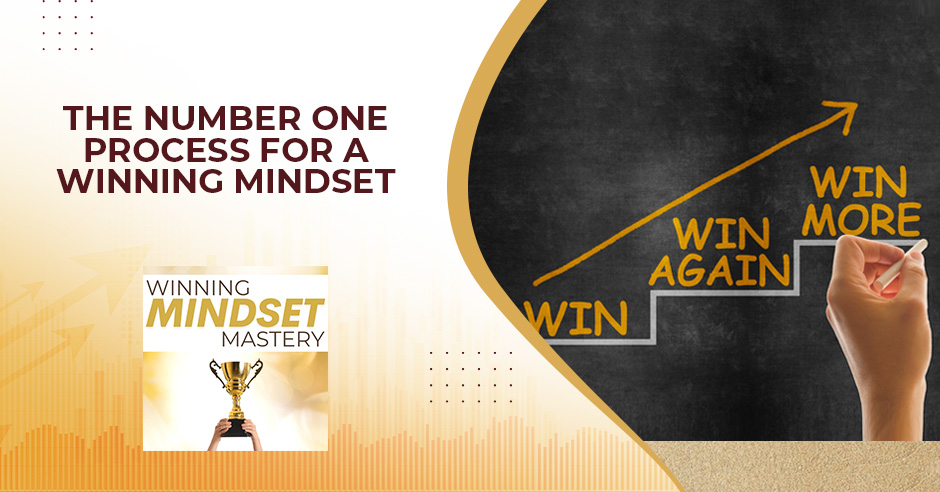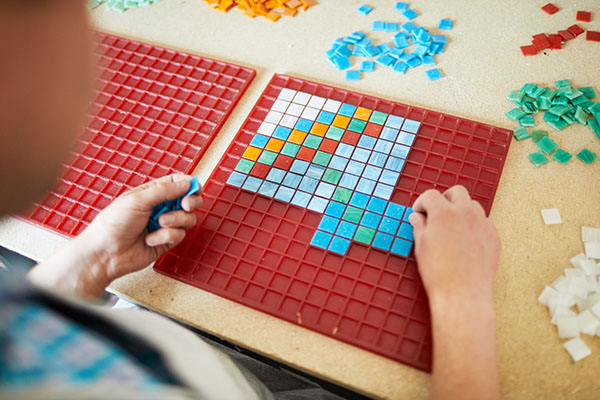
It’s a question April gets asked a lot. And in this episode of the Winning Mindset Mastery Podcast, she’s going to answer it. Her answer may surprise you. You may like it, or you might not. But here’s the thing: Even though it’s not glamorous, the answer she gives you is proven to work. It’s proven to help you achieve the winning mindset you long for. Today, April also shares with you what she views as the best way to practice reframing and the wonderful outcome that you experience when you diligently make reframing a habit.
—
Listen to the podcast here
The Number One Process For A Winning Mindset
I am so glad you are here. I am going to talk about a question I get asked all the time, which is, “How do I get better at reframing things and viewing them in a way that feels better to me and helps me have more of a winning mindset?” It’s just like anything else. It’s like a hobby, a sport, or learning a new skill in your job. The more reps you get under your belt, the better you will be at it.
Reframing is a skill that requires you to look at things a little differently and be more objective so you can see and trust all of the ways that things could be working out for you instead of just happening to you. That’s something that we get better at over time. A challenge can be practicing it because when you are at the place where you most want to get better at reframing is when you might be the worst at it at the moment when something happens to you. In that case, I often give people the advice to wait or try and ignore whatever that situation is and think through the logic later on. However, there’s an even better way if you want to advance at this even faster.

Reframing: Reframing is a skill that requires you to look at things a little differently and be more objective, so you can see and trust all of the ways that things could be working out for you instead of just happening to you.
Anytime we learn something new and we do it over and over again, we are likely to develop shortcuts in our brain so that we can make it easier for us to come up with the answer. The technical term for this is a heuristic, and that’s the shortcuts that we take with our brains. It’s interesting because there’s a whole bunch of different kinds of heuristics. Some of them have to do with biases. Some of them have to do with other theories and things that we think, but overall, they can be used to your advantage and the fact that your brain tends to do this.

Reframing: Anytime we learn something new and do it over and over again, we are likely to develop shortcuts in our brain so that we can make it easier for us to come up with the answer.
What I mean is you can practice reframing in situations that aren’t so highly emotional for you. If you will remember in a previous episode, I talked about how the part of your brain that regulates and controls your emotions processes incredibly fast. Even faster than the part of your brain that controls your logical thought. That can help you understand why sometimes you can have your emotions just rev up to a hundred and it feels like your brain and your logical mind are lots of steps behind.
Here’s the best way that you can practice reframing. The first way is to practice it with situations that happen to others. I do not suggest that you tell them your reframe unless they are asking you for it because the quickest way to upset your friends and people you care about is to reframe things when they are not ready for it. As people share things with you, you can, in your mind, reframe how you would look at it and all the different ways that you could see it working out for them.
It’s great practice because again, you are developing those pathways. When you encounter a similar situation to one that someone you know has encountered and you have reframed, it will be that much easier for you to go through the reframing process for yourself. If that doesn’t sound like something you want to do, maybe think it will take you away from active listening. You don’t want to return to it later. Another way you can do it is with TV shows and movies.

Reframing: When you encounter a similar situation to one that someone you know has encountered and you have reframed it, it will be that much easier for you to go through the reframing process for yourself.
You may have noticed in a lot of movies, you have got this hero’s journey of some sort. There is a point in the movie where everything looks like it’s not going to work out. The great thing is, you know in a movie, most of the time, it will work out. Try reframing that situation and guessing all the different alternate endings based on where they are at that point. What’s so great is it starts to help you see different ways that things can end up being in your favor without experiencing it yourself.
You can also do it with TV shows. That’s probably easier because they are shorter. Any type of drama series that tends to resolve within that episode, I think that’s called episodic, is a great one to practice with. Also, your objective, you are in the third person, you are watching it happen. That can help you develop the skill to do it for yourself.
Lastly, this is one that I have talked about before and it can be so incredibly helpful because this one’s close to home. If you start to look at situations in the past, some of them are going to be easy to reframe because ultimately when they are resolved and finished, they worked out to your benefit. There was a moment in that situation or maybe lots of moments where you never imagined how it could work out for you, and you thought that it was just this terrible situation. With hindsight and more information, you know that it was something that ended up being for your greatest good.
What you can also do is start to look at other situations where it may not have been so obvious that it worked out for you. However, when you spend some time thinking about it now with your new mindset tools, you can see how it worked out for you. The more of those situations that you start to get familiar with in your own life, the easier it’s going to be for you to trust that those things are happening. It’s going to be easier for you to trust that even when you can’t reframe, you can have that calmness and peace that comes from knowing, “Things are always working out for me. I just don’t know how this is yet.”
You can have that calmness and peace that come from knowing that things are always working out for you, even though you don’t know how yet. Share on XGive that a try. If you have questions about this, feel free to head to my website for the show. It’s WinningMindsetMasteryPodcast.com. At the bottom of the page, you can Ask April a question in your voice. It’s private and I won’t answer you personally. I’m looking forward to hearing how this works out for you. Here’s to your success.





